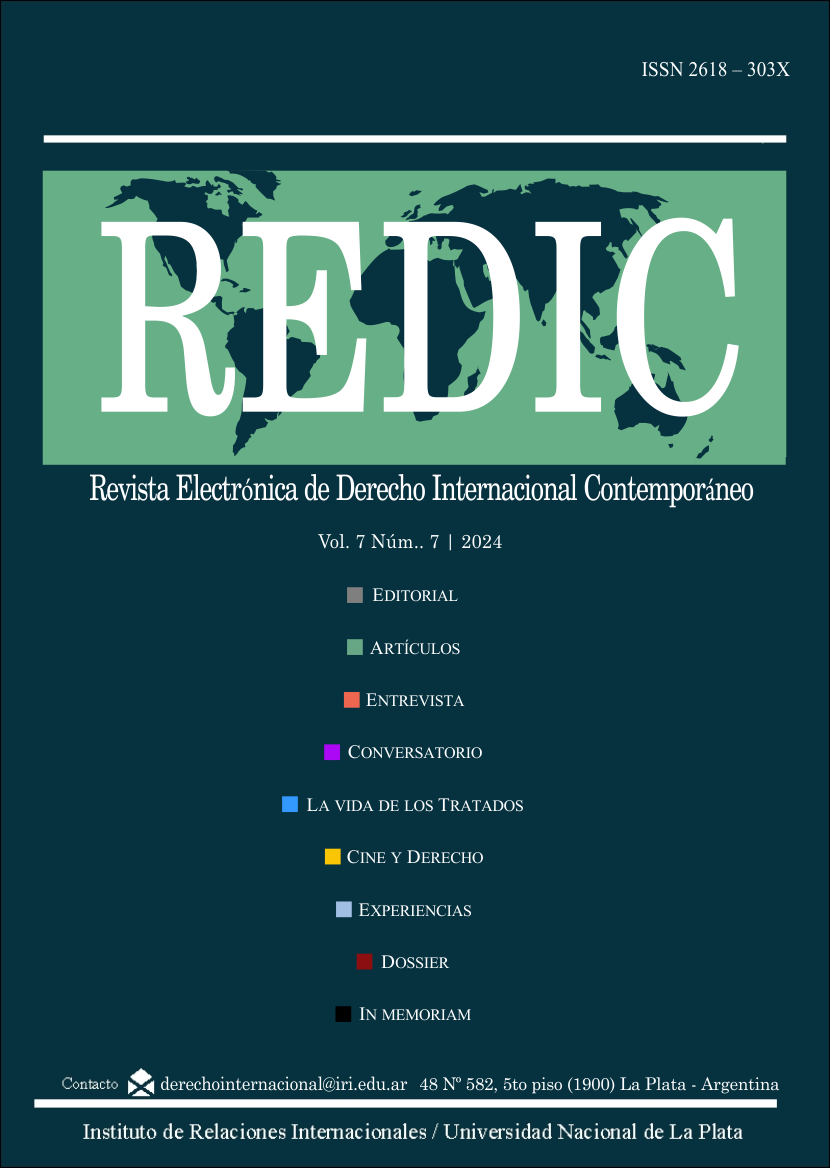Reconceptualizing human rights in the new international order
DOI:
https://doi.org/10.24215/2618303Xe068Keywords:
international order, international relations, human rights, effectivenessAbstract
The present extends a daily invitation to reflect upon whether our structures need updating or not. In this case, and given the complexity of today’s international relations, we ask ourselves whether it necessary (or not) to define the already well-known human rights in a different way. This may be so, because the context in which they are exercised has changed and it may call us to think about the existence of new rights or about new content in already existing ones, or even because threats have changed and it is time to rethink whether we need new protection mechanisms in order to guarantee such rights, among other relevant issues. The answer to this question is more urgent than ever before.
Downloads
References
Arvan, M. (2012). Reconceptualizing human rights. Journal of Global Ethics, 8(1), 91-105. https://doi.org/10.1080/17449626.2011.635693
Pérez Adroher, A., López de la Vieja de la Torre, M. T. y Hernández Martínez, E. (Eds.). (2020). Derechos humanos ante los nuevos desafíos de la globalización. Dykinson, S.L. https://doi.org/10.2307/j.ctv1ks0fm4
Raz, J. (2010). Human Rights in the emerging world order. Transnational Legal Theory, 1(1), 31-47. https://doi.org/10.1080/20414005.2010.11424500
Additional Files
Published
How to Cite
Issue
Section
License
Copyright (c) 2024 Anna Buchardó Parra, Katarzyna Szwed, Natalia Lorena Loscocco, Alberto Delfín Arrufat Cárdava, Liliam Lesly Castro Rodríguez

This work is licensed under a Creative Commons Attribution-NonCommercial-ShareAlike 4.0 International License.
Aquellos autores/as que tengan publicaciones con esta revista, aceptan los términos siguientes:
- Los autores/as conservarán sus derechos de autor y garantizarán a la revista el derecho de primera publicación de su obra, el cuál estará simultáneamente sujeto a la Licencia de reconocimiento de Creative Commons (BY-NC-SA) 4.0 que permite a terceros compartir la obra siempre que se indique su autor y su primera publicación esta revista, no se haga uso comercial, y si se remezcla, se transforma o se crea a partir del material, se debe distribuir bajo la misma licencia del original.
- Los autores/as podrán adoptar otros acuerdos de licencia no exclusiva de distribución de la versión de la obra publicada (p. ej.: depositarla en un archivo telemático institucional o publicarla en un volumen monográfico) siempre que se indique la publicación inicial en esta revista.
- Se permite y recomienda a los autores/as difundir su obra a través de Internet (p. ej.: en archivos telemáticos institucionales o en su página web) antes y durante el proceso de envío, lo cual puede producir intercambios interesantes y aumentar las citas de la obra publicada. (Véase El efecto del acceso abierto).





















